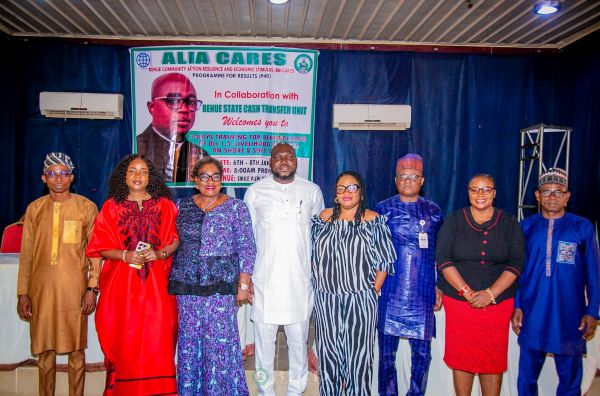Alia Cares Injects Over ₦600 Million into Benue’s Small Business Economy, Empowers 4,000 Entrepreneurs

In a significant boost to grassroots entrepreneurship and economic recovery efforts, the Benue State Government, through its flagship Alia Cares Scheme, has disbursed ₦150,000 grants to more than 4,000 small business owners across the state.
The initiative, funded by the state with critical support from the World Bank, aims to stimulate micro, small, and medium enterprises (MSMEs) — widely recognized as the backbone of Nigeria’s economy — and empower a new generation of Benue entrepreneurs.
Speaking to the News Agency of Nigeria (NAN) in Makurdi, Benue’s Commissioner for Finance, Mr. Michael Oglegba, disclosed that larger businesses, including salons and service providers, also benefited, receiving ₦500,000 each to scale operations.
“So far, we have injected grants into more than 4,000 small businesses to enable them to make a profit, expand, and create jobs. We are receiving more requests daily,” Oglegba said.
The strategic spread of the grants across various sectors — retail, agriculture, beauty, and processing industries — reflects a deliberate effort to diversify the state’s local economy and drive sustainable development.
Beyond Grants: Building an Inclusive Economic Base
The Alia Cares intervention extends beyond direct business grants. Farmers, a vital economic bloc in Benue — often referred to as the “Food Basket of the Nation” — have been supported through agricultural input distributions under the Fadama programme.
Farmers receive essential resources like fertilisers, cassava stems, day-old chicks for poultry farmers, and piglets for piggery ventures. Hundreds of cassava processing machines have also been distributed, boosting the agro-processing value chain — a critical sector for rural industrialization and food security.
Such initiatives align with the World Bank’s broader developmental philosophy: empowering local productivity, reducing poverty, and fostering inclusive growth.
Social Protection for the Vulnerable
In a nod to social inclusion, the Alia Cares Scheme has also institutionalized direct cash transfers to the state’s poorest and most vulnerable citizens. Beneficiaries, selected from the state’s social register, receive monthly stipends, with special provisions for elderly citizens receiving ₦10,000 per month for up to a year.
Additionally, unemployed but able-bodied citizens are enrolled in labour-for-cash programmes, carrying out light public works and receiving stipends — a model that mirrors successful social protection strategies across emerging economies.
Community-Led Development Projects
Perhaps most impressively, the scheme empowers communities to directly drive local development. Communities identify their most pressing needs — whether boreholes, primary healthcare centres, or schools — select their contractors, and manage projects, with the state providing full funding.
Oglegba revealed that 54 community projects have already been completed under this model between January and April 2025, with a 100% success rate.
“The Alia Cares approach is not just about handouts; it’s about empowerment, ownership, and sustainability,” he said.
Bigger Picture: Why This Matters for Nigeria’s MSME Ecosystem
With MSMEs contributing approximately 48% to Nigeria’s GDP, according to the National Bureau of Statistics (NBS), targeted interventions like Alia Cares are critical for national economic resilience — particularly amid inflationary pressures, foreign exchange volatility, and rising unemployment.
By injecting liquidity directly into the informal economy and empowering community-driven projects, Benue is setting an example for subnational governments seeking to bridge gaps in access to finance, rural development, and social protection.
For sectors like aviation, where Air Peace and others continue to expand regional networks, a vibrant MSME base creates ripple effects — from increased business travel and logistics demand to greater financial inclusion, which in turn strengthens consumer purchasing power.
As Nigeria looks to diversify its economy away from oil and embrace a more inclusive growth model, replicating and scaling initiatives like Alia Cares could be key to unlocking a more prosperous future.











